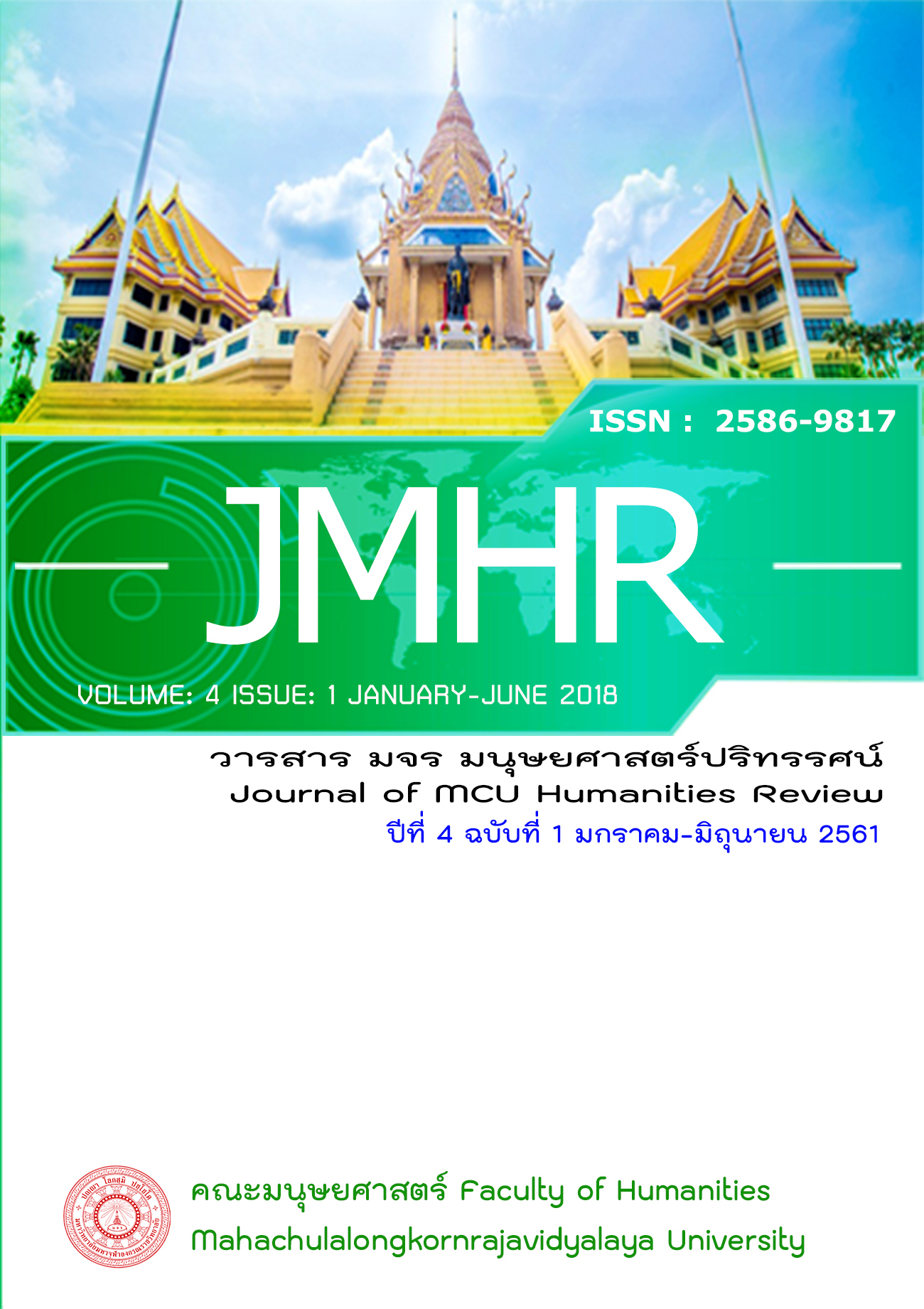ผลการใช้โปรแกรมการเห็นคุณค่าในตนเองตามหลักพระพุทธศาสนา : กรณีศึกษา นักเรียนชั้นมัธยมศึกษาปีที่ 1 โรงเรียนมัธยมวัดดุสิตาราม
คำสำคัญ:
การเห็นคุณค่าในตนเอง, คุณค่าแท้คุณค่าเทียม, พระพุทธศาสนาบทคัดย่อ
บทความวิจัยครั้งนี้มีวัตถุประสงค์ 2 ข้อคือ 1) เพื่อศึกษาระดับการเห็นคุณค่าในตนเอง ตามหลักพระพุทธศาสนาของนักเรียนชั้นมัธยมปีที่ 1 โรงเรียนมัธยมวัดดุสิตาราม และ 2) เพื่อศึกษาผลของโปรแกรมการเห็นคุณค่าในตนเองตามหลักพระพุทธศาสนาของนักเรียนชั้นมัธยมปีที่ 1โรงเรียนมัธยมวัดดุสิตารามก่อนและหลัง ระเบียบวิธีวิจัยที่ใช้เป็นการวิจัยแบบกึ่งทดลอง ประชากร คือนักเรียนระดับชั้นมัธยมศึกษาปีที่ 1 จำนวน 150 คน กลุ่มตัวอย่างจำนวน 60 คน เป็นกลุ่มทดลองและกลุ่มควบคุม อย่างละ 30 คน และเครื่องมือที่ใช้ในการวิจัย ได้แก่แบบสอบถามและโปรแกรมการเห็นคุณค่าในตนเองตามหลักพระพุทธศาสนา และสถิติที่ใช้ประกอบด้วย ค่าเฉลี่ยส่วนเบี่ยงเบนมาตรฐาน การทดสอบค่าที แบบสองกลุ่มสัมพันธ์ ผลการวิจัย พบว่า การวิเคราะห์ความแตกต่างของคะแนนเฉลี่ยการเข้าร่วมกิจกรรมการเห็นคุณค่าในตนเองของกลุ่มควบคุมและกลุ่มทดลอง หลังการทดลอง ทั้งสองกลุ่มมีค่าเฉลี่ยของคะแนนโดยภาพรวมแตกต่างกันอย่างมีนัยสำคัญที่ 0.01 และการวิเคราะห์ความแตกต่างของการเข้าร่วมกิจกรรมในกลุ่มทดลอง ก่อนและหลัง มีค่าเฉลี่ยการเห็นคุณค่าในตนเอง ทั้งคุณค่าแท้คุณค่าเทียมในตนเอง คุณค่าในการทำประโยชน์แก่ตนเอง และคุณค่าในการทำประโยชน์แก่ผู้อื่น แตกต่างกันอย่างมีนัยสำคัญที่ 0.01






